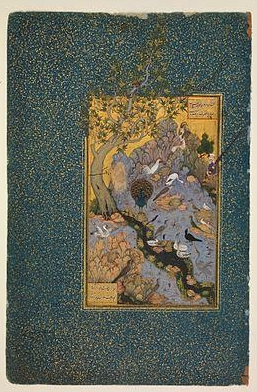The shift from God the Divine disciplinarian to God the Loving Creator started early on in the Islamic world.
The introduction of the element of love in Islam—the Sufi ideal of a love God/Allah that was disinterested, without quest for paradise and without fear of hell—which changed asceticism into mysticism, is ascribed to Rābiʿah al-ʿAdawīyah , a woman from Basra (in Iraq), died 801.
Sufism, known as tasawwuf in the Arabic-speaking world, is a mystic and ascetic aspect of Islam that emphasizes introspection and spiritual closeness with God. Followers try to get closer to God by seeking spiritual learning known as tariqa. Opposed to the dry casuistry of the lawyer-divines, the mystics nevertheless scrupulously observed the commands of the divine law. In early centuries of Islam the classical form of Sufi thought was transmitted in small circles.
- One of the Sufi mystical leaders (shaykhs) was Iranian Mufiammad al- Ṭūsī al-Ghazālī, (born 1058, Ṭūs, Iran). His subtlest treatises (Sawānifi; on mystical love, became the main subject of Persian poetry.
- Farid al-Din Attar Nishabouri – 1221; Attar means apothecary, was a Persian poet, theoretician of Sufism, and hagiographer from Nishabur (North East or Iran) who had an immense and lasting influence on Persian poetry and Sufism. He wrote a collection of lyrical poems and number of long poems in the philosophical tradition of Islamic mysticism, like (Manṭiq-uṭ-Ṭayr) The Conference of the Birds. As well as a prose work with biographies and sayings of famous Muslim mystics.


